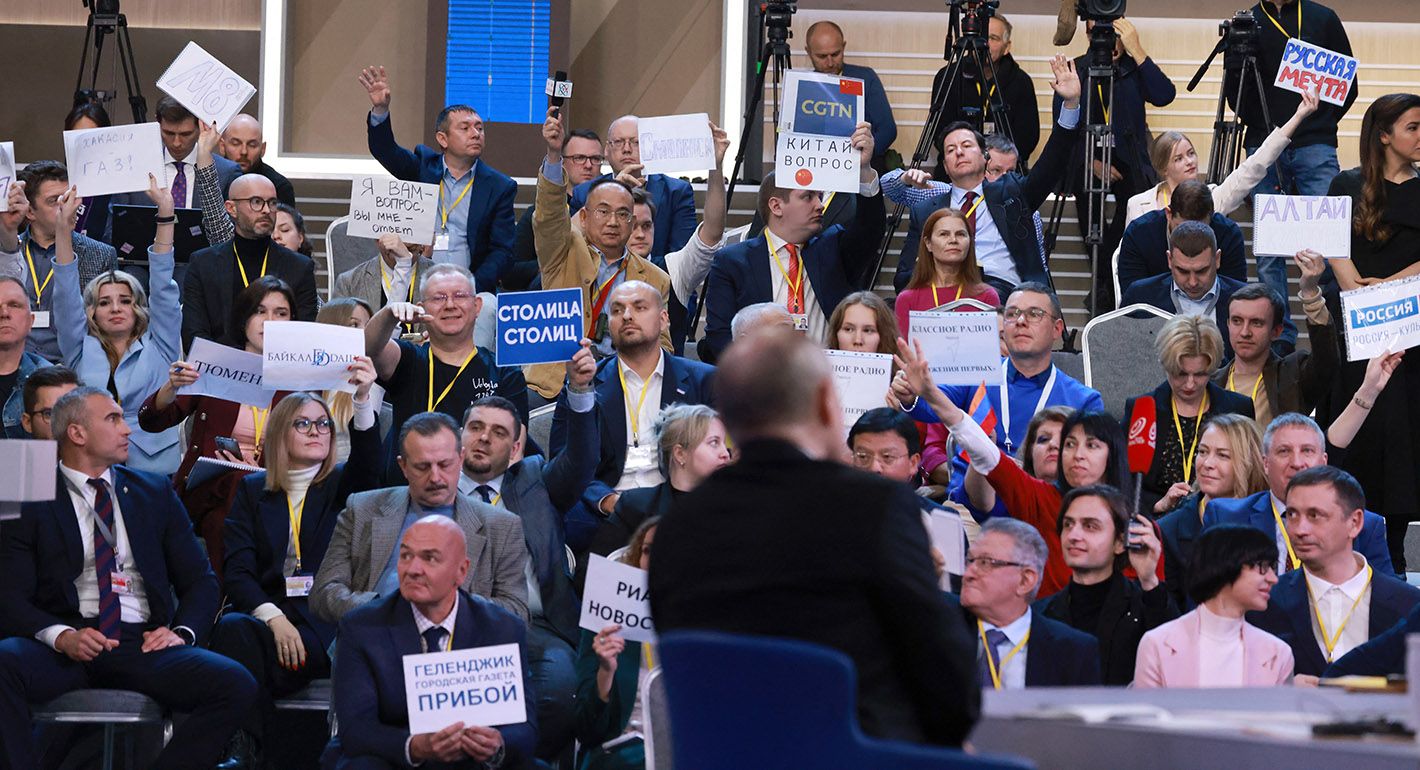Talking to journalists on December 19, 2024, Russian President Vladimir Putin appeared more sure of himself, his historical mission, and his ability to end the war in Ukraine than he’s ever been. At the same time, he was gloomy about the prospects of an agreement with U.S. president-elect Donald Trump. The long-awaited rotation of the Western elite that is exemplified by Trump has not—at least so far—led to the West taking a more pragmatic approach to either the war in Ukraine or Russia.
Putin’s main concern appears to be that he lacks an international interlocutor with whom he can discuss Ukraine’s future, the security of the world, and other strategic issues.
The Russian president complained repeatedly about European countries, which, he said, had lost their statehood and national identities. He lamented that Europeans—particularly Germans—had lost “the sovereignty in their hearts.” He predicted further decline and degradation for the continent. And he wistfully recalled the “all-round scholar” that was former French president Jacques Chirac; the “international figure” of former German chancellor Helmut Kohl; and the “warm and energetic” late Italian leader Silvio Berlusconi.
For Putin, these European leaders were head and shoulders above the current crop. And he believes that even the conservative parties that win European elections today are too weak to do anything about what he sees as the continent’s complete dependence on the United States.
The Russian leader also pulled out all the stops at the press conference to show that he is ready to begin negotiations on ending the war in Ukraine. It appears that Putin believes Ukraine has already lost the war, and that Kyiv has no resources left to continue the fight.
Russia’s November 21 attack on the Ukrainian city of Dnipro with a new ballistic missile known as Oreshnik seems to have strengthened Putin’s belief in a Russian victory. Several times in recent weeks, he has waxed lyrical about the capabilities of Oreshnik, and he even told the assembled journalists that the West could take part in an experiment. “Let them choose a target, for example in Kyiv, where they can concentrate all their air defense systems and we’ll attack it with Oreshnik. And then we’ll see what happens,” Putin said. The mere fact that Putin is prepared to air such ideas in public speaks volumes about his attitude to the war in Ukraine, as well as his deep misunderstanding of Western politics.
At the same time, Putin appears disappointed that Russia’s military successes have not yet forced his enemy to the negotiating table. Not only does Putin have no one to talk to in Europe, there is no one in Ukraine either—where he considers President Volodymyr Zelensky and all his appointees to be illegitimate.
In essence, Putin put forward two suggestions that would be acceptable to Moscow. If negotiations begin now, then Ukraine can be represented by the Ukrainian parliament—the Verkhovna Rada—and its speaker; if they start further down the road then Russia would be ready to deal with a new Ukrainian president. But Moscow will not negotiate with Zelensky.
Nor did Putin express any particular enthusiasm at the prospect of negotiating with Trump. He said he hadn’t spoken to Trump for four years, and was cautious about the prospects of any future contact with the White House. He repeated that a solution to the conflict in Ukraine was only possible on the basis of an aborted 2022 peace deal negotiated in Istanbul, and that it would have to take into account the facts on the ground.
Putin appears to be concerned that Trump is so focused on a ceasefire that he might end up ignoring the root causes of the war. In recent weeks, a whole series of Russian officials, including Kremlin spokesman Dmitry Peskov, Deputy Foreign Minister Sergei Ryabkov, and Russia’s representative to the United Nations Vasily Nebenzya, have rejected the possibility of the Ukraine conflict being frozen. Now Putin has said the same thing.
The Russian president is likely also doubtful whether Trump’s plans are realistic. As Ryabkov said recently, Trump is giving “contradictory signals” based on principles that “do not align” with Russian interests. Possibly, Putin believes Trump has yet to establish his position. But the more time passes, the clearer it becomes that Trump and his team are not interested in a comprehensive discussion about Ukraine’s future, let alone negotiations about major security issues.
Putin himself said that he is not eager to seek an end to the fighting in Ukraine because a ceasefire—even if it lasted for just a few days—would only give Ukraine a chance to consolidate its position. And why would Russia, which currently enjoys the upper hand on the battlefield, agree to such a thing?
Indeed, the outlook for Putin is not taking shape to his advantage: there is nobody with whom he can do business in Europe; Trump is only looking for an easy win; and Ukraine continues to insist on NATO membership and security guarantees. It does not bode well for Putin’s ultimate goal, which is less about conquering Ukrainian territory and more about triggering the collapse of the Ukrainian state and the ruling elite. For the moment, Russia’s military successes are not sufficient to deliver such an outcome. Instead, Russia has to settle for seizing small chunks of Ukrainian territory at huge economic and human cost.




